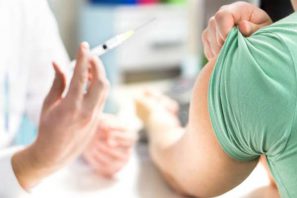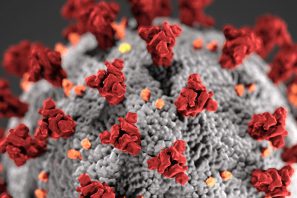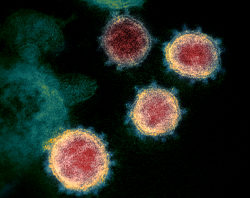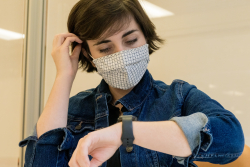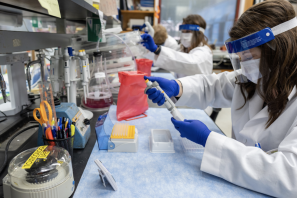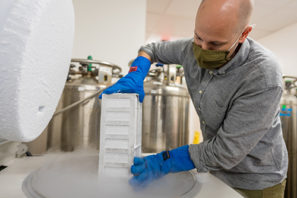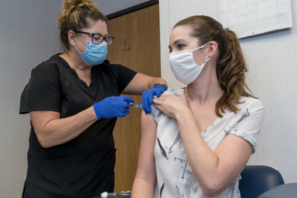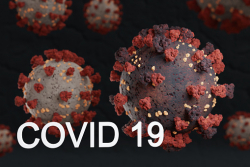A UF team of infectious disease experts propose a core protocol for such vaccination trials.
To learn how we might fight the next viral pandemic, consider an engine on a commercial jet.
An engineer can recreate that engine and its every component on a computer.
University of Florida Health researchers are joining an ambitious global effort led by The Rockefeller Foundation to better track the coronavirus and its variants and set up a network of collaborators to stop any nascent pandemic in the future.
Researchers from across the University of Florida and UF Health have joined an urgent effort to collect and donate personal protective equipment, or PPE, to build upon existing stockpiles in support of clinical colleagues on the frontlines of treating COVID-19.
The trial is part of the national HERO Registry centered on COVID-19 investigations.
University of Florida Health researchers are joining an ambitious global effort led by The Rockefeller Foundation to better track the coronavirus and its variants and set up a network of collaborators to stop any nascent pandemic in the future.
UF Researchers will begin evaluating whether hydroxychloroquine can prevent COVID-19 infections.
Many Americans are simply touching their faces too often during the novel coronavirus pandemic, public health officials have observed, potentially increasing their exposure to the pathogen.
UF Health researcher Barry Byrne, M.D., Ph.D. is working to develop a COVID-19 vaccine.
ntists can grow individual cell lines in a dish and study how the coronavirus infects them. And that’s useful as far as it goes. In a sense, however, it’s like studying how a car works by looking at just the carburetor. To gain the most insight, researchers want to study human lung tissue in its full, multidimensional glory, with all cell types represented.
A flu vaccination might do more than protect against influenza. It might also shield some people from a severe case of COVID-19 — even though the infection is caused by an entirely different virus.
An antibiotic used to treat leprosy is among a handful of existing drugs that could attack and slow the spread of the United Kingdom variant of the SARS-CoV-2 virus that causes COVID-19, a University of Florida Health researcher has found.

